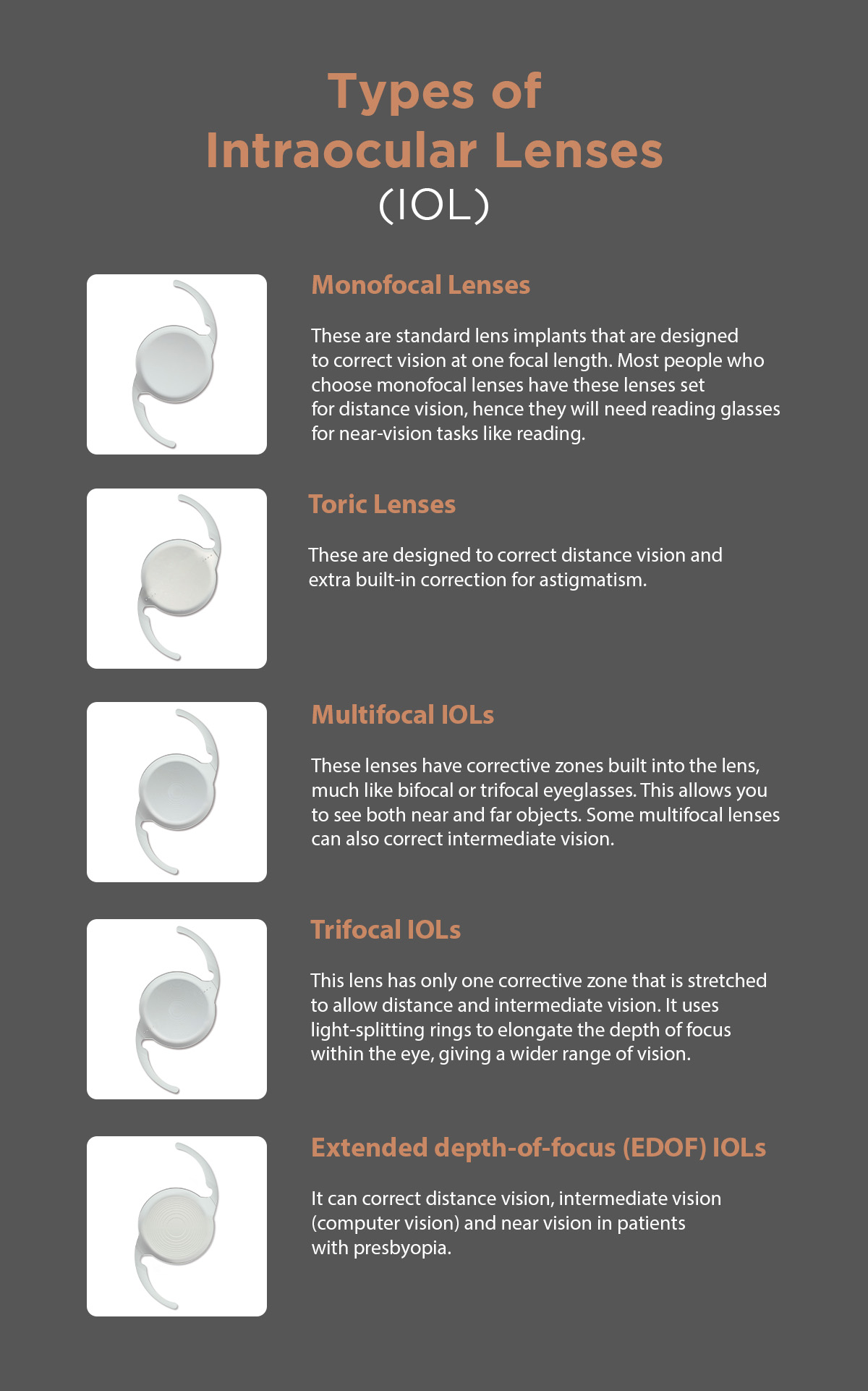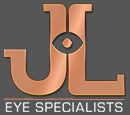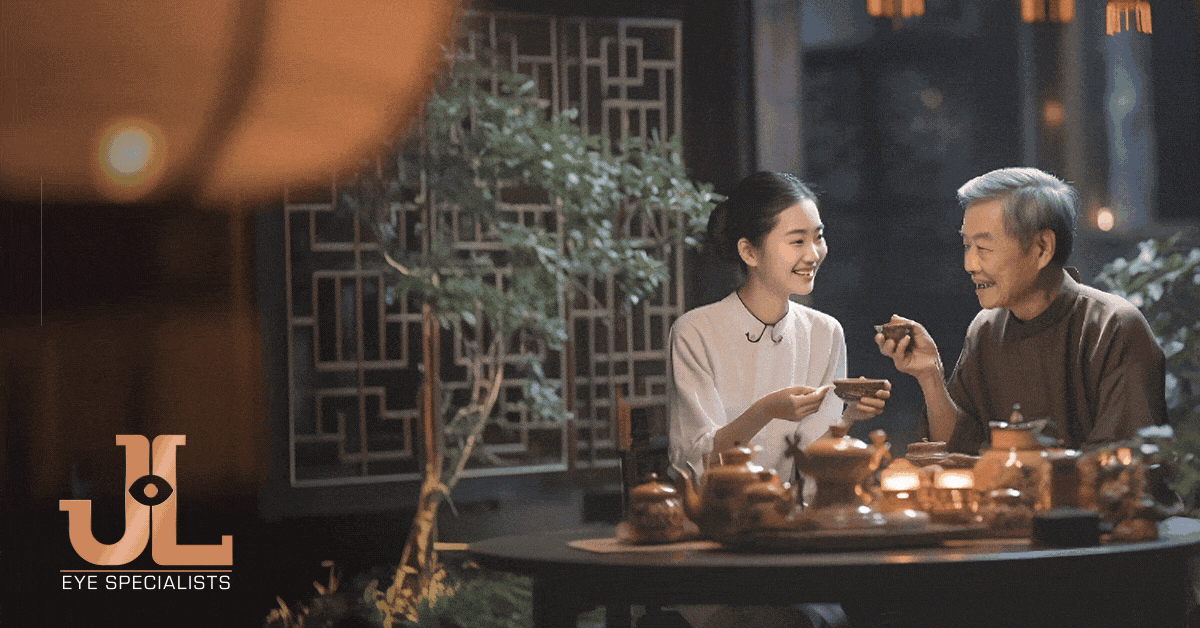Refractive Options During Cataract Surgery

Cataract surgery is a corrective procedure for the natural clouding of the eyes’ lens that comes with aging. As the cataract progressively becomes thicker, it blocks more and more light from reaching your retina, impeding vision.
The procedure works by replacing the eyes’ lens with an intraocular lens (IOL), an artificial, permanent implant made of biocompatible and flexible material. Just like our natural lens, intraocular lenses have the ability to bend and refract light, which helps focus clear and sharp images onto the retina.
Book a consultation with Dr Jimmy Lim today.
The different types of cataract surgery are among the most commonly performed eye procedures. Yearly, some 26 million worldwide undergo it. In Singapore, around 78 percent of the elderly population is affected by some form of cataract. As much as two-thirds of affected adults were previously undiagnosed. Yet, despite cases of cataract surgery being documented as far back as Ancient Egypt, the procedure still has its limitations.
Traditionally, patients have had to choose between two to three types of intraocular lenses. The type of implant a doctor will choose for a patient usually depend on existing conditions such as astigmatism, lifestyle needs and job requirements.
- Monofocal are the most commonly implanted lens. They allow the wearer to correct short-sightedness or far-sightedness, but never both, because the focusing power of the lens remains constant throughout the whole implant. Patients who opt for clear near vision will still need glasses for tasks like driving, while patients who choose clear distance vision will need glasses for tasks like reading.
- Astigmatic or toric lenses allow you to correct for short or far distances and at the same time corrects for astigmatism that causes ghosting of images.
- Multifocal lenses allow you to see short and far distances clearly. Trifocal lenses allow you to see short, far and intermediate distances. In both instances it can correct for astigmatism when required. However, patients who get multifocal lenses may experience visual images such as glares, halos around bright lights, and shadows, which can be disturbing for some. It might impede a patient’s vision in dim light, which makes some patients an ill-fit for them, like pilots or people who often have to drive through the night.

Why Do Patients Still Need Glasses After Surgery?
Current technologies and diagnostics has now given the ability for some patients to achieve 6/6 vision after the cataract surgery, and most of the patients to have independence from glasses.
However, there are some patients with more difficult calculations or has refractive errors that are not compatible with their choice of IOLs. Therefore, some of these patient will need glasses after surgery.
For patients post-cataract surgery who wish to correct for the residual refractive error may opt for LASIK surgery and IOL exchanges.
What is Monovision Cataract Surgery?
Patients who want to eliminate the use of glasses or contacts entirely can undergo monovision cataract surgery. For this procedure, surgeons implant lenses to allow clear distant vision in the dominant eye, and near vision in the other. However, not everyone can be a candidate for the procedure, as some patients’ brains fail to adjust to using one eye for near vision and the other for distant vision. “Many patients get misled by asking how their friends like monovision. Some individuals hate what another individual loves,” cautions Dr. David F. Chang of the University of California in an interview with The New York Times.
A Clearer Future: How is Cataract Surgery Improving?
- Adjustable lenses
A new development in intraocular lenses allow them to be implanted after the surgery. Just like how you choose which grade your glasses will be, this tech allows you to choose the prescription that grants you back 6/6 vision. With this customized correction, 6/6 vision after cataract surgery isn’t just a happy chance for roughly half of the people who undergo the surgery. “Patients like having a lens customized just for them. They get to choose the power they want,” says Dr. Vans Thompson, one of the opthalmologists who led research on the new lens.
The new lens is made of a photoreactive silicone material. This means that the lens reacts to light by changing shape. Then, a device that focuses light “writes” the custom prescription onto the lens after the eye has healed from surgery.
The process is completed through multiple sessions, requiring patients to come back for follow-up visits. It also requires patients to wear UV sunglasses until the procedure is fully completed, because the lens will be sensitive to ultraviolet light. However, this IOLs are still experimental and hasn’t gained popularity.
Cataracts can be debilitating if left untreated. Fortunately, multiple treatment options abound, and advances in the field inch cataract surgery closer to restoring clear vision for majority of the patients.
.
If you are thinking of getting your cataract treated, our medical director Dr. Jimmy Lim can answer all your questions, and create a custom treatment plan for you. Book a consultation with Dr. Jimmy Lim today.







